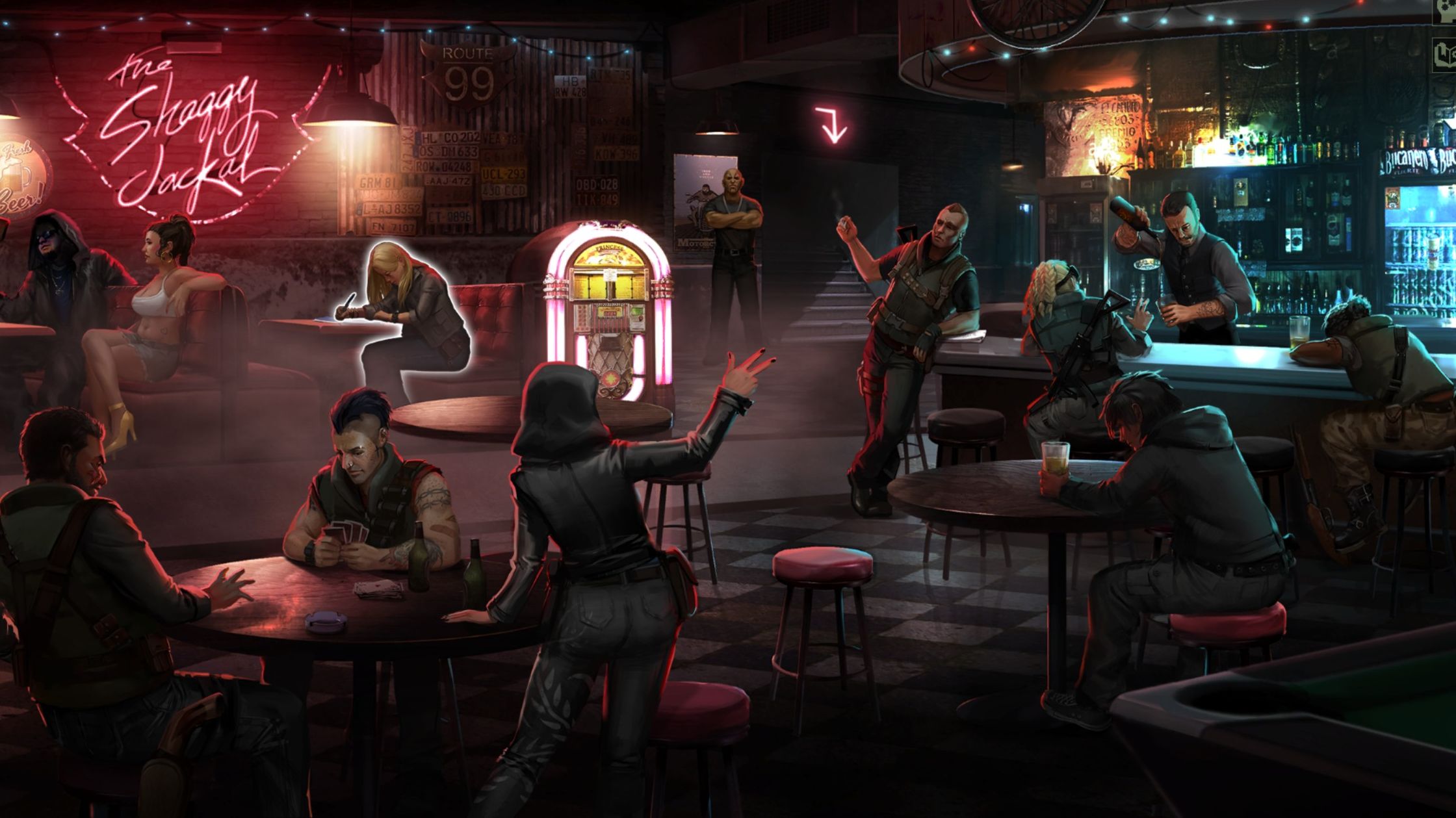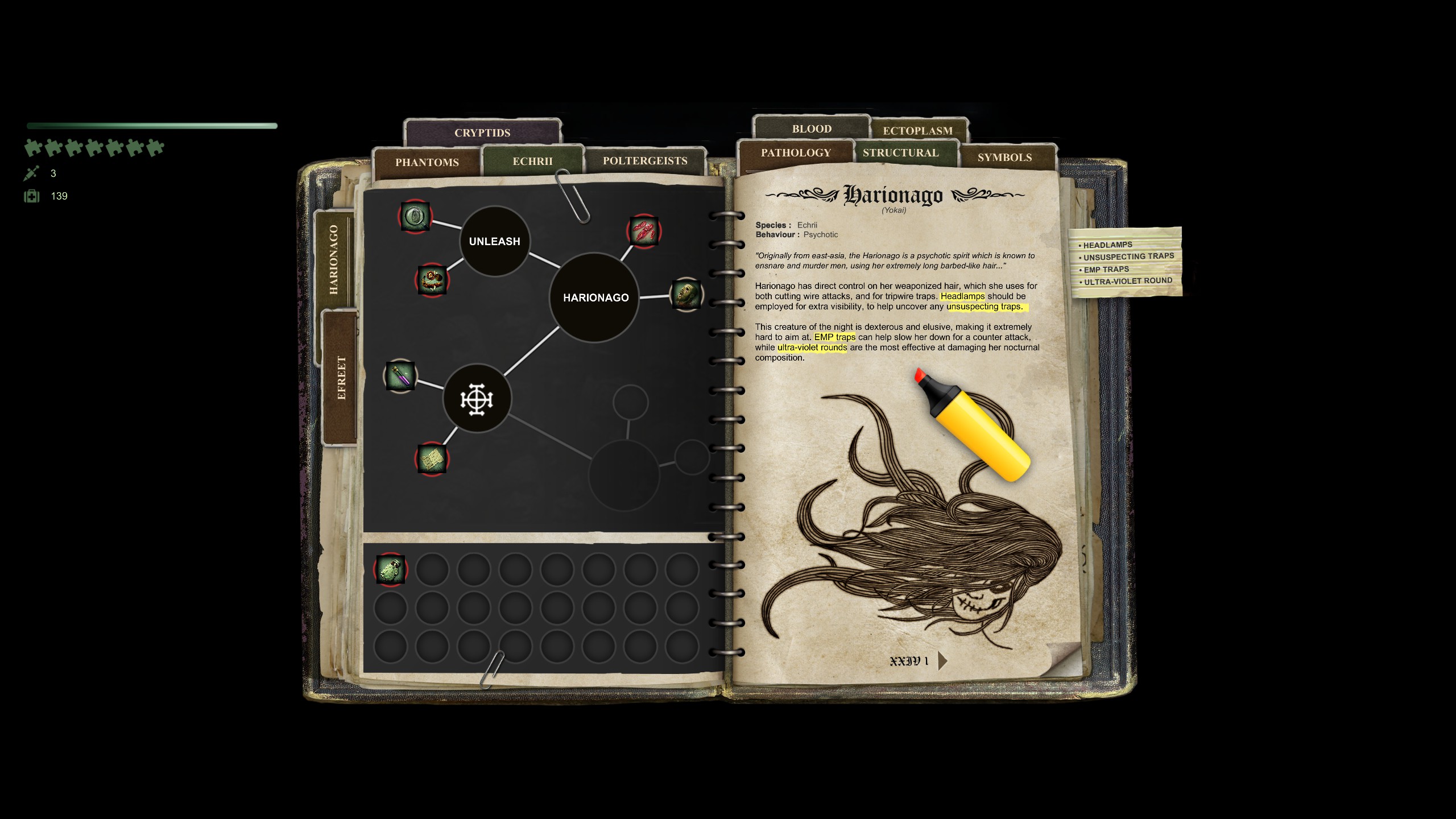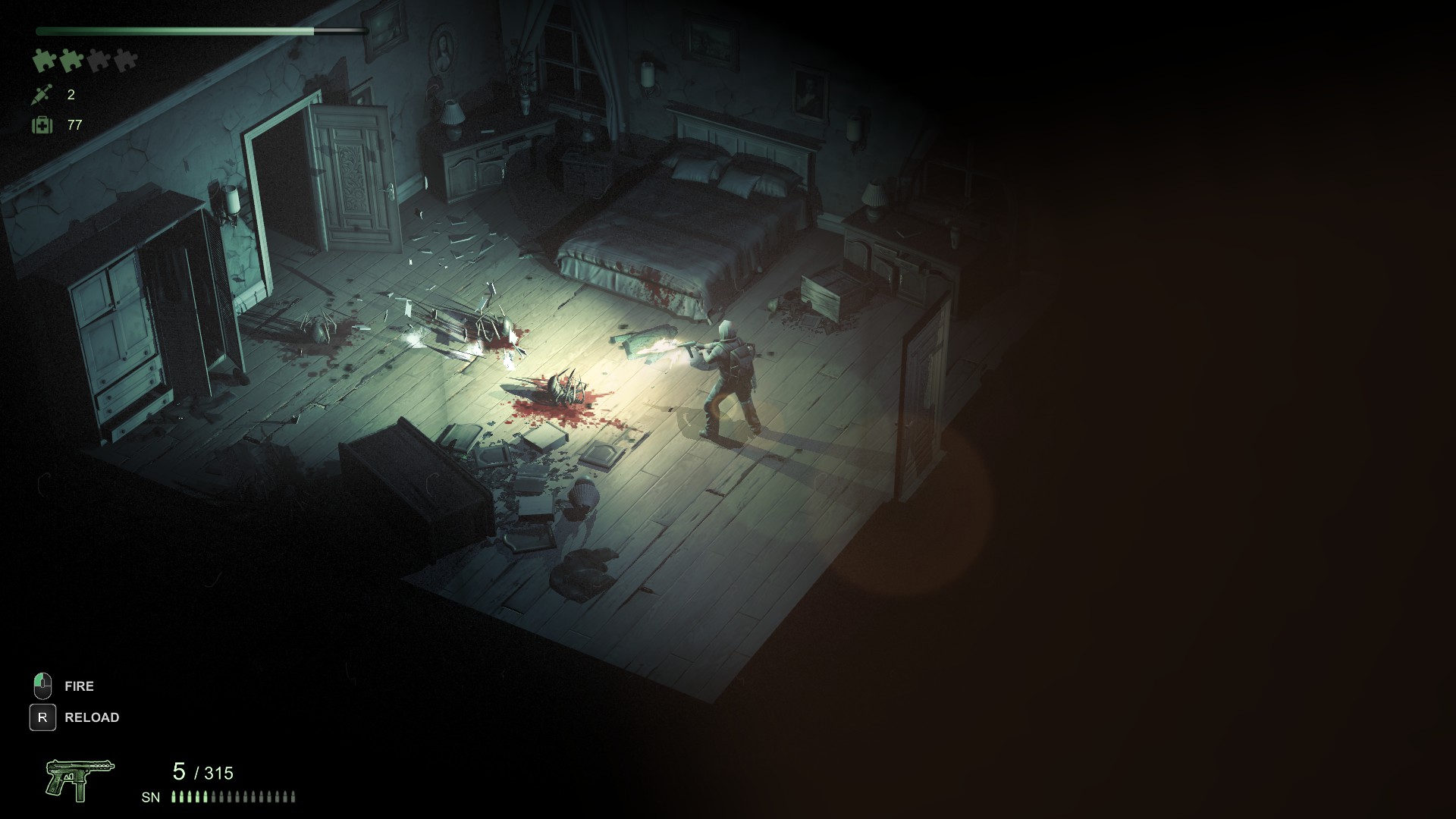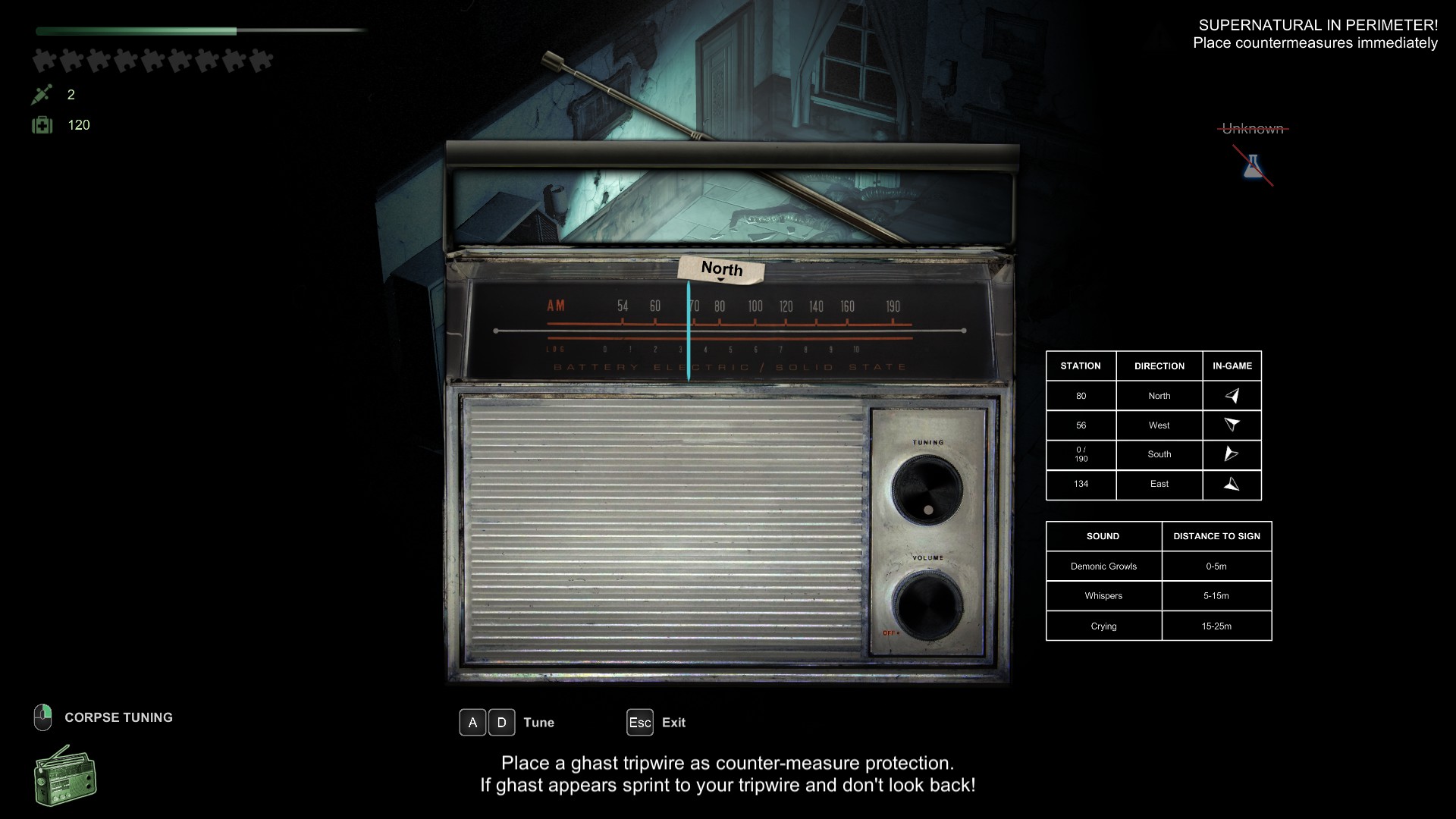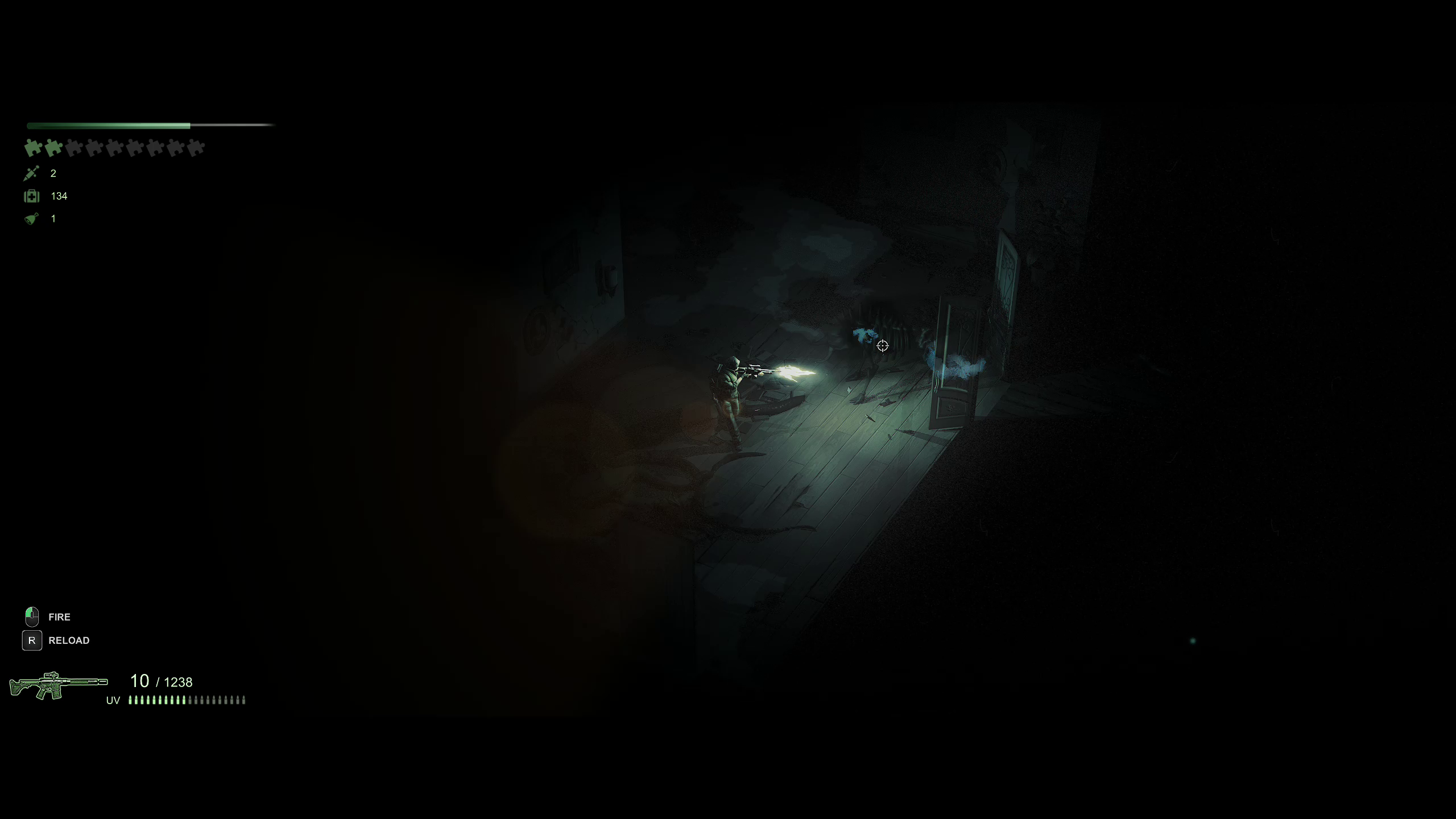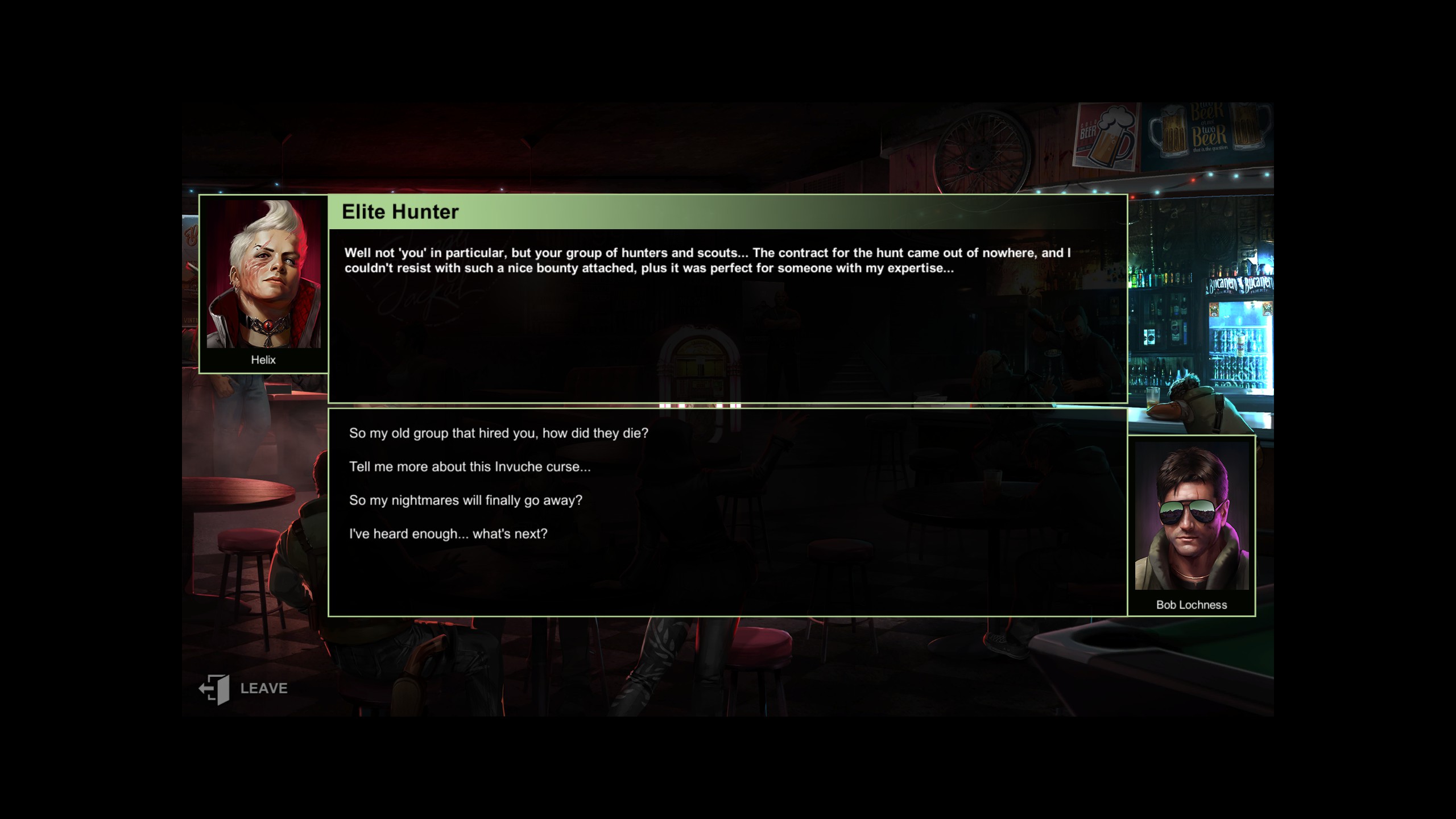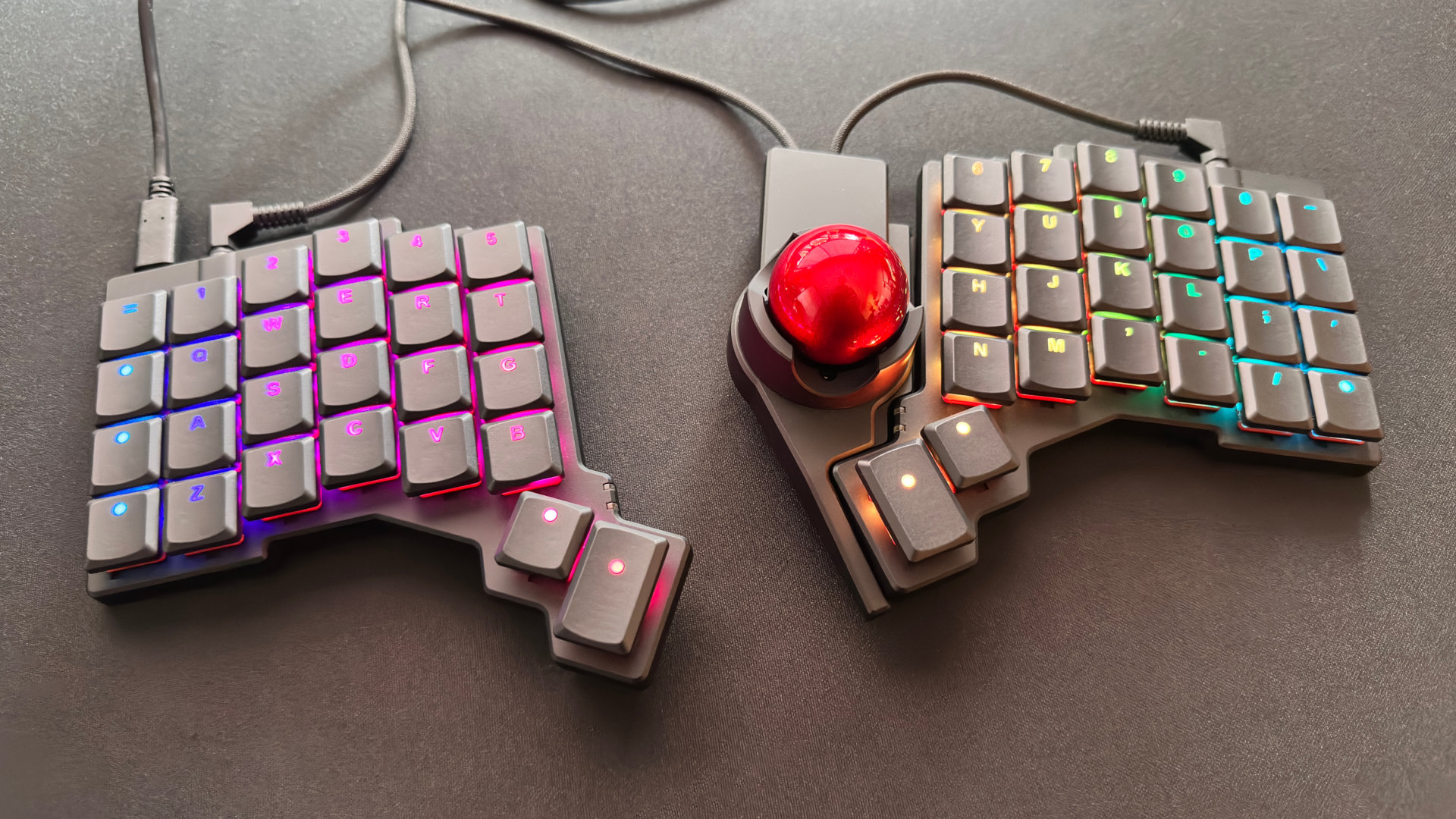Our Verdict
A tense, atmospheric game tangled in the tendrils of poor pacing and grind.
PC Gamer's got your back
What is it? A paranormal investigation shooter with RPG elements.
Expect to pay $20/£15.49
Developer Ballistic Interactive
Publisher Ballistic Interactive
Reviewed on AMD Ryzen 7 5800X, Radeon 5700XT, 15GB RAM
Multiplayer? No
Link Official site
HellSign shows a lot of promise as you prepare to venture out into the grotty gods-forsaken town in backwater Australia. You pick a class from an interesting bunch like Detective, Archaeologist and Ninja, you meet the local undesirables, and you start to fantasise about the kind of ghost-hunter you want to be—a researcher who learns their enemy? A trapmaster who lures hellbeasts to their demise? A balls-to-the-wall gunslinger?
The possibilities seem vast and that demonic encyclopedia you carry around looks awesome, ready to be filled with your deductions and doodlings as you seek to overcome the beasts of the night. I love the fact that you can use an in-game highlighter pen to mark it up too, emphasising any details that can aid you.
But after five, six missions, the allure of paranormal investigation makes way for more mundane reality—one where all those little idiosyncrasies of the character you build and myriad nice touches get consumed by a protracted grind, which only pays off many hours later.
HellSign is an oddly paced game, but it's also a game with vision. It pits you as a rookie ghost hunter in an Australian town decimated by demons - ranging from poltergeists to bloodied hands rising up out of the ground. Mercenaries and misogynists and the absolute worst kind of people swarm there in a kind of ghoulish Gold Rush, seeking the valuable artefacts and body bits dropped by the monsters. Even a set of digits from a human hand fetches a good price out here in the Stygian sticks.
You're one of these undesirables, afflicted with amnesia and a mysterious tattoo that haunts you with a demon that resurrects you each time you die. It's a good enough premise, and while the story is light it's nicely joined together by some graphic novel cutscenes and well drawn characters (all of them assholes, mind).
So you carry out missions for the local skeevers and thieves and psychopaths, picking your destination from a map screen where you can see the type of contract, its difficulty and location. Once in a mission, it's a mix of gun skirmishes and clue-hunting using all manner of weaponry, traps and paranormal-tracking paraphernalia.
The best tools are the ones that feed into the game's hideously good sound design. Sure, the evil monotone drone on every level just makes me think of a classic Super Hans moment from Peep Show, but the manic laughter and spooky child chanting picked up by your mic, or the radio device that you manually tune to track demonic whispers and crying are genuinely unsettling (and make good headphones a vital tool for this game). Using these tools along with heat-sensing equipment and plenty of corpse-rummaging, you track down 'signs' and get an idea of where the ghoulies lie in wait to ambush you, letting you flip the script back on them by setting up traps and equipping the right ammo.
Keep up to date with the most important stories and the best deals, as picked by the PC Gamer team.
Each monster presents distinct patterns, and slowly learning them is a big part of the fun. Ghouls cling to ceilings and trees, so lure them out to open spaces, Shadow Beasts hate UV light and can temporarily pull you into another dimension. Like in so many games, the scuttling enemies are the worst—tiny (and by that I mean wolf-sized) spiders and nasty centipedes that flank you and chip away at you from the shadows. Kill them all with fire.
It's a great feeling to routinely overcome enemies that once felt gravely threatening, and HellSign eventually delivers that.
Your defences rely on a mix of dodge-rolling, armour, and making sure you have enough stability lest you get stunlocked to hell. HellSign doesn't quite have the precision and responsiveness to incorporate these combat elements smoothly, leading to some maddening and frustrating moments. Your perpetual lack of peripheral vision means that many of your perfectly timed dodge-rolls will be right into walls, tree roots or dining chairs that block your path. Smaller enemies, meanwhile, can feel too fiddly to fight precisely, making them irritating rather than intimidating.
Do your deductions right, and you'll find out the nature and weaknesses of the optional boss that awaits at the end of each level.
You get to do some baby detective work too. Gather enough evidence in a mission, and you can cross-reference the body parts and blood splatters you find with those in your beautifully stylised demonic encyclopaedia. Do your deductions right, and you'll find out the nature and weaknesses of the optional boss that awaits at the end of each level. There are several of these, ranging from a giant arachnid that crawls through the air to a burning skull that should really be accompanied by the shredding of a bass guitar.
The bombast of these encounters—all visual disturbances and synth-operatic music—lifts the largely dour tone of the game, although it'll be many hours before you have the equipment and knowledge to take these on. A more incremental boss system or some sort of scaling would've made it possible to spread these fights throughout the game rather than using them as a bookend.
And that's the main problem here. HellSign has a solid loop based around your own learning and a bit of grind as you level up your skills, equipment and weaponry to take on tougher enemies, but the early-to-mid-game is a chore. The three environment types—forest, house, junkyard—quickly grow samey despite some perfunctory procedural generation. There's no visual flair to these spaces, and the early-game tracking equipment results in far too much time spent on your knees looking for signs based on overly broad estimates.
In combat, you'll hit pretty rigid walls where you'll struggle to progress without the relevant upgrades. But you can't just save up and buy the right equipment and tools. Most of the things you can wear are locked behind skill points as well; accessories, traps, grenades, sight attachments, barrel attachments—all forcing you to jump through the double loop of XP and money grind. It means a lot of retreading the same few environments, and a lot of XP spent on just getting the essentials rather than building a bespoke character. I grew to dread the grind, having to half-guess the skill and equipment I needed to surmount the next difficulty spike.
About 12 hours later, once I attained that critical balance of skills, weapons and tools, something strange happened: I actually started having a good time.
I found the perfect combo of tools to zero in on signs efficiently, I had enough battery power to read spirit orbs and learn where monsters would ambush me, I understood most of the monster behaviours, and I had the skills to use traps and night-vision goggles. I felt efficient and professional, doing that wanky thing where I'd adjust my headset's earcup with a stern frown on my face while tuning my ghost radio. Finally, I had become the grimy ghostbuster I always wanted to be.
HellSign has a lot of good ideas, but they only really coagulate to outweigh its mechanical and pacing problems towards the endgame, and I don't think I would have gotten that deep into it were it not for my reviewerly obligations. It does reward your efforts eventually, but the journey to get there is an arduous one.
A tense, atmospheric game tangled in the tendrils of poor pacing and grind.
Robert is a freelance writer and chronic game tinkerer who spends many hours modding games then not playing them, and hiding behind doors with a shotgun in Hunt: Showdown. Wishes to spend his dying moments on Earth scrolling through his games library on a TV-friendly frontend that unifies all PC game launchers.
